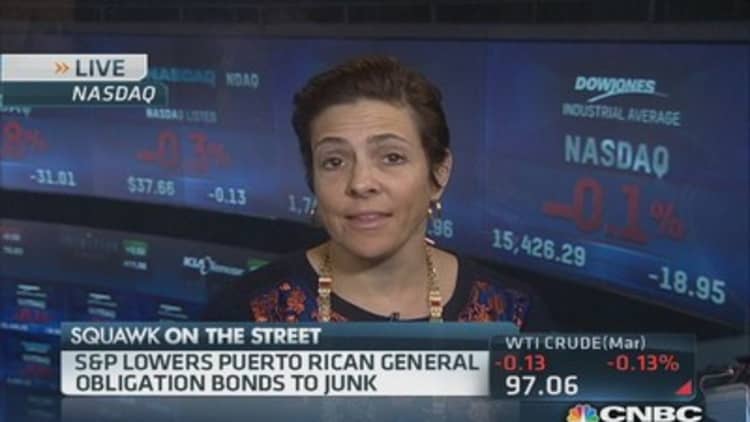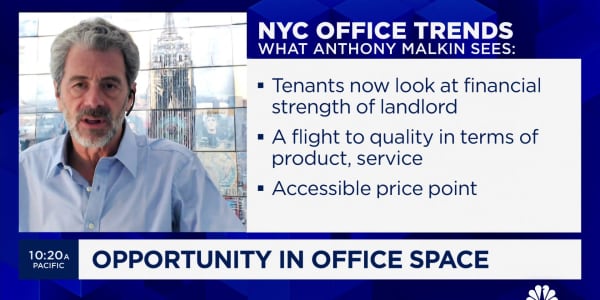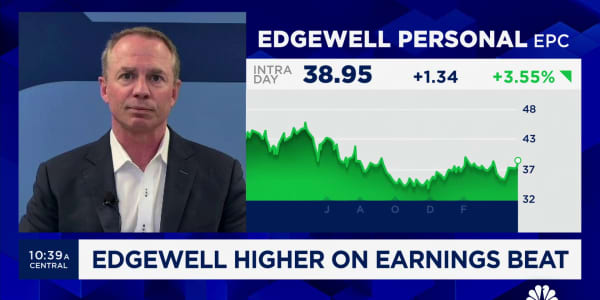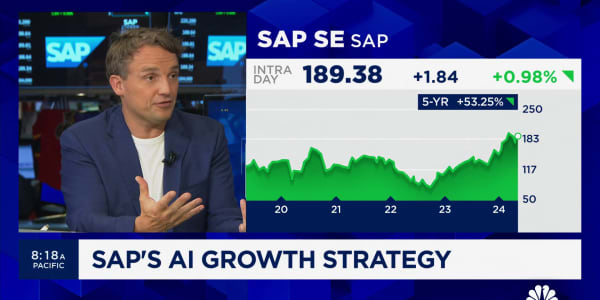Downgrading Puerto Rico's debt took "cojones" though it was long overdue, according to one bond pro.
Ratings agency Standard & Poor's—one of the so-called Big Three, along with Fitch and Moody's—announced Tuesday it was slashing the troubled island's debt to junk. S&P worried that the territory's fiscal plight would restrict its access to debt markets and make it more difficult to repay its $70 billion debt load.
With its ultimate impact yet to be seen, the move was welcomed in some circles.
"It has taken this long for even one rating agency—S&P is the first—to downgrade Puerto Rico's credit worthiness," Marilyn Cohen, head of Envision Capital Management in Los Angeles, said in a note titled "Someone Found Their Cojones," a Spanish term she said refers to "that part of the male anatomy generally associated with courage."

(Read more: )
"Puerto Rico's bond yields were already distressed way before S&P saw fit to tell the truth," she added. "Bondholders whose sanctity is no longer guaranteed cannot finance the island's operations. This, even as the country's constitution prioritizes its general obligation bonds. If there is no money to pay the bondholders, whatever the constitution says is a mute point. The bondholders lose."
The big question on the S&P move is not as much over Puerto Rico's prospects as for the larger $3.7 trillion municipal bond space.
After a year in which money poured out of muni funds, 2014 has seen a change so far, with $548 million in net inflows, according to the Investment Company Institute.
Closed-end mutual funds turned in a stellar January, providing investors an escape hatch as equity markets stumbled. As a group, munis gained 3.5 percent, according to Citi Research.
(Read more: Bonds beating stocks in 2014...so far)
Muni analyst Mikhail Foux at Citi said the market expected the S&P downgrade so it likely won't have a "dramatic effect" on the larger muni picture. However, he did say there are dangers should investors start to worry over a nascent muni recovery that remains fragile.
"We are concerned about the effect of negative headlines on muni investor mentality (muni fund outflows have stopped only recently and this could serve as a negative catalyst which could potentially tip the balance back into outflow territory)," Foux said in a note to clients. "In the aftermath of the downgrade, we believe that the importance of successfully placing a deal for Puerto Rico, coupled with reaching its budgetary goals, has substantially increased and will determine the market dynamics going forward."
In some circles the Puerto Rico downgrade drew outrage.
Richard Larkin, director of credit analysis at HJ Sims, for months has been advising investors not to let their fears get the best of them, despite Puerto Rico's precarious situation.
In an analysis Wednesday, he ripped S&P's move as counterproductive at a time when the island is trying to right its ship and maintain access to credit markets.
(Read more: Why Puerto Rico needs to borrow money—and soon)
"As long as Puerto Rico maintains its current course of fiscal discipline, I don't give a damn about a rating agency downgrade, especially one that looks so arbitrary," Larkin said. "Investors who believe Puerto Rico bonds are only worth 60 cents on the dollar (or less) will sell their bonds at a loss—that is unnecessary and unwarranted."
Larkin said investors shouldn't get too worked up over the downgrade.
"Rating downgrades usually peak after a bond issuer's worst performance is behind them, and credit factors are on the mend. S&P's downgrade yesterday meets that description, but the predictions of an inability to access credit seems like an arbitrary excuse for a major rating downgrade," he said. "Time will tell whether investors accept S&P's reasons for the downgrade, or choose to ignore the downgrade as irrelevant and ill-timed."
—By CNBC's Jeff Cox. Follow him on Twitter @JeffCoxCNBCcom.






